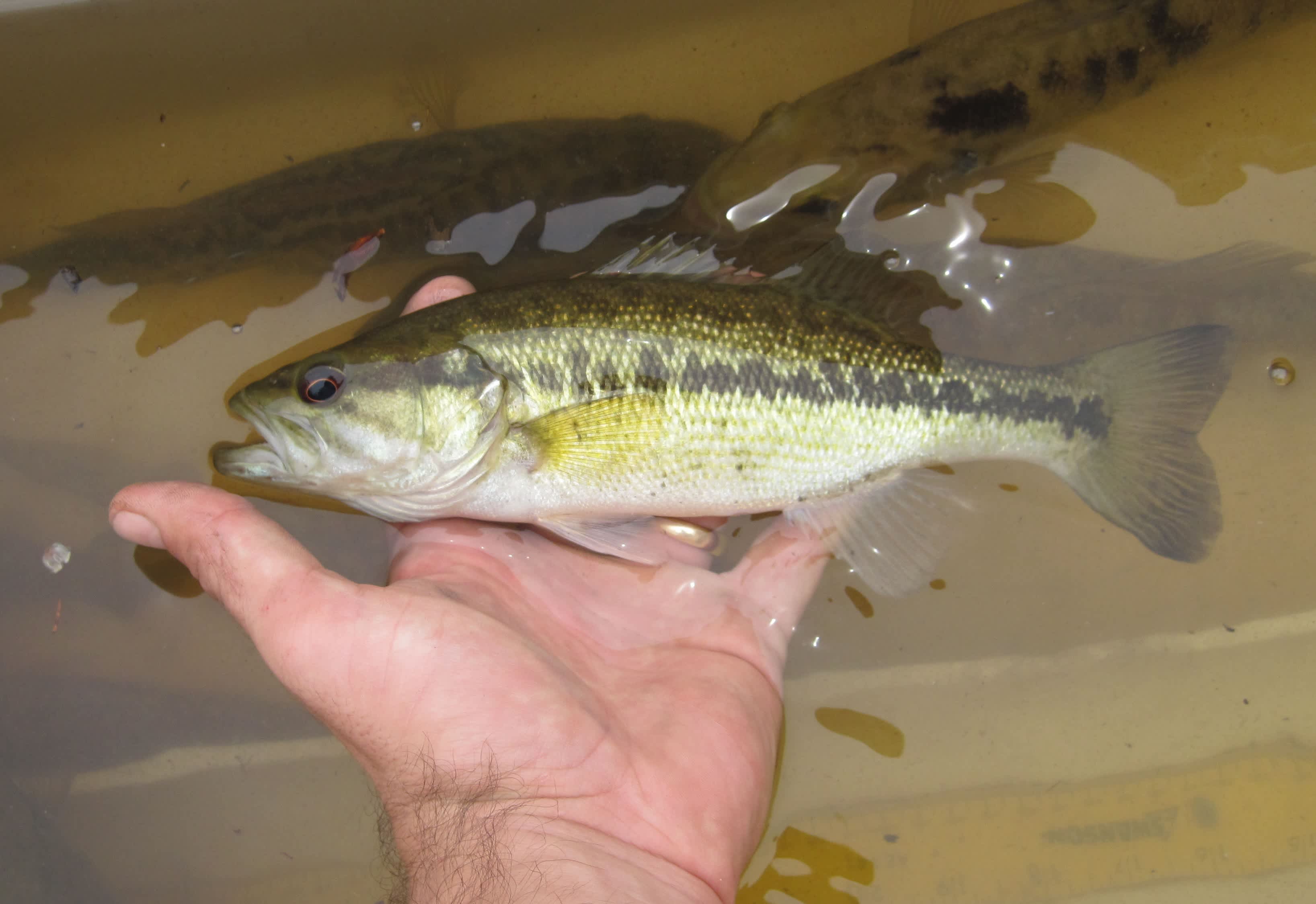Florida FWC Scientists Discover New Bass Species

Scientists with the Florida Fish and Wildlife Conservation Commission (FWC) have uncovered a new species of black bass in the southeastern United States. Scientists have proposed naming the new species the Choctaw bass and recommended the scientific name of Micropterus haiaka. They revealed their discovery at a meeting of the Southern Division of the American Fisheries Society earlier this year.
FWC scientists first noted a DNA profile that did not belong to any recognized species while testing a bass specimen from the Chipola River in 2007, as part of a broader genetic study of bass.
“We didn’t set out to find a new species,” said Mike Tringali, who heads the genetics laboratory at the FWC’s Fish and Wildlife Research Institute. “It found us.”
After confirming the initial discovery, scientists searched for the DNA profile in bass caught in nearby rivers to determine the species’ range. They found that the Choctaw bass inhabits coastal river systems in Alabama and along the western Florida panhandle, including the Choctawhatchee River.
“We chose the name ‘Choctaw bass’ because the species’ range overlaps the historic range of the Choctaw Indians,” said Tringali. “As for our recommended scientific name, Micropterus haiaka, ‘haiaka’ is a Choctaw word that means ‘revealed.’”
The American Fisheries Society must approve the suggested scientific name for it to take effect.
The Choctaw bass is very similar in appearance to its relative, the spotted bass. The physical differences between the two species are not easily seen with the naked eye, one reason they had never before been distinguished despite decades of bass studies in the region.
For more information about how FWC scientists discovered the new bass species, visit MyFWC.com/Research, click on “Freshwater,” and select “Black basses” under “Freshwater Sport Fishes.”

